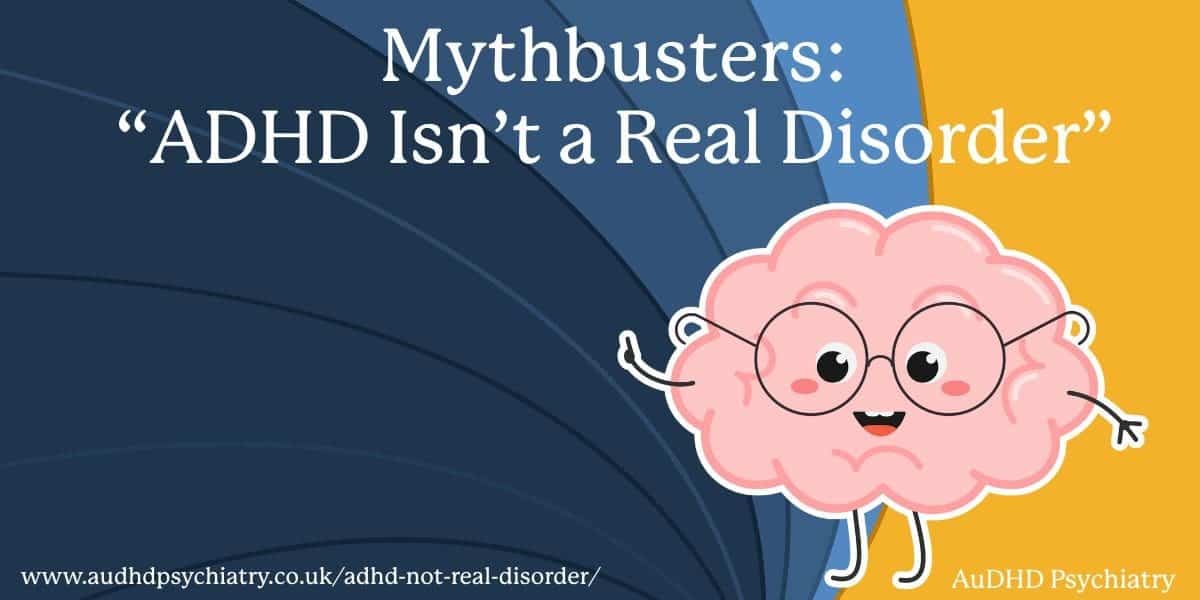
Ever heard someone dismiss ADHD as “just laziness” or “a made-up label for bad behaviour”? For people living with attention deficit hyperactivity disorder (ADHD), these comments are not only inaccurate but deeply damaging. ADHD is a recognised neurodevelopmental disorder backed by decades of scientific evidence, brain imaging studies, and global medical consensus.
Despite this, myths persist, fuelled by outdated beliefs, misleading media portrayals, and a lack of public awareness. These misconceptions can delay diagnosis, prevent people from accessing the right treatment, and contribute to stigma that affects daily life, relationships, and mental health.
In this article, we cut through the noise. You’ll learn what ADHD really is, the science proving it’s a real medical condition, and why it’s nothing like the stereotypes suggest. If you’ve ever doubted ADHD, or had others doubt you, this guide will give you the facts, the research, and the tools to counter misinformation with confidence.
Why Some People Claim ADHD is Not a Real Disorder
Persistent Misconceptions and Arguments
Scepticism around ADHD often stems from the belief that its core traits, such as lack of focus, impulsive behaviour, and restlessness, are simply personality quirks or poor self-discipline. Some argue that “everyone has these traits sometimes,” which overlooks the severity, frequency, and functional impairment required for an ADHD diagnosis.
Others point to increases in ADHD diagnoses over the past decade as “evidence” of overdiagnosis, without considering improved awareness, updated diagnostic criteria, and better access to healthcare providers.
Historical Scepticism
Historically, ADHD has faced doubt within both the public and medical communities. Early research lacked the sophisticated brain imaging and longitudinal studies available today, leading some to question whether it was a distinct medical disorder. This uncertainty was reinforced by inconsistent terminology, with ADHD previously labelled as “minimal brain dysfunction” or “attention deficit disorder,” contributing to public confusion.
Influence of Media and Stereotypes
Media portrayals often depict ADHD in extremes, often showing hyperactive young children disrupting classrooms or adults using it as a comedic trope. Such portrayals ignore inattentive symptoms and the challenges faced by adults, women, and individuals with co‑occurring mental health conditions. Social media trends and oversimplified “ADHD checklists” can further dilute the scientific evidence, making it easier for sceptics to dismiss ADHD as a real disorder.
The Reality of ADHD
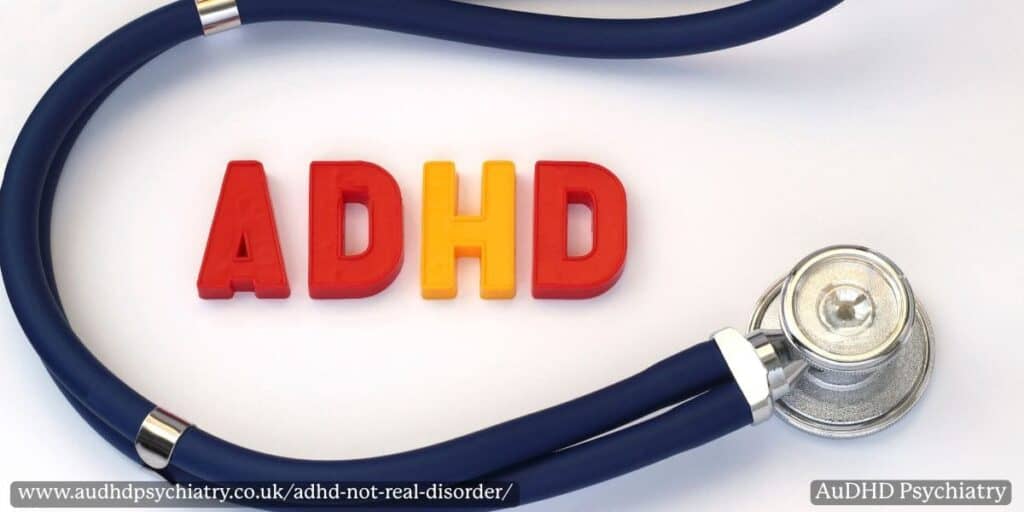
Clinical Definition
ADHD is a recognised neurodevelopmental disorder defined by persistent patterns of inattention, hyperactive‑impulsive symptoms, or both, that interfere with daily life. According to the Diagnostic and Statistical Manual of Mental Disorders, Fifth Edition (DSM‑5), symptoms must have existed for a minimum of 6 months, occur in multiple settings, and cause significant impairment. The International Classification of Diseases (ICD‑11) uses similar diagnostic criteria.
Recognition by Global Medical Bodies
ADHD is classified as a real medical condition by the World Health Organization (WHO), the National Institute of Mental Health, the American Psychiatric Association, the UK’s National Health Service (NHS), and the National Institute for Health and Care Excellence (NICE). These organisations base their stance on decades of clinical trials, neuroimaging studies, and research efforts confirming ADHD’s biological and neurological underpinnings.
Distinction from Everyday Distraction
Everyone experiences occasional forgetfulness or distraction. However, in ADHD, symptoms such as sustained lack of focus, impulsive behaviour, and executive function deficits occur consistently, across different environments, and to a degree that disrupts education, employment, and relationships.
This distinguishes ADHD from typical lapses in concentration and underlines why it requires accurate diagnosis and evidence‑based treatment.
The Science of ADHD
Real Science Defines ADHD as a Real Disorder
Across the medical community, there is broad scientific consensus that ADHD is a genuine neurodevelopmental disorder. Decades of research from the United States, the UK, and other countries show that ADHD has measurable neurological and behavioural features that set it apart from typical variations in attention or activity level.
As we’ve previously shared, major health organisations, including the American Psychiatric Association, the National Institute of Mental Health, the World Health Organization, and the UK’s NICE, have issued position statements affirming ADHD as a real medical condition. This conclusion is based on extensive peer‑reviewed studies, clinical trials, and longitudinal research tracking symptoms of ADHD from early childhood into adulthood.
Causes and Brain Chemistry
The exact cause of ADHD remains complex, involving a combination of genetic, neurological, and environmental factors. Family studies consistently show higher rates of ADHD among close relatives, indicating a strong hereditary component. Twin studies further support genetic influence, with identical twins showing higher concordance rates compared to non‑identical twins.
Environmental factors also contribute. Being born prematurely, having a low birth weight, or experiencing toxin exposure in the womb or early childhood have all been identified as risk factors. Early childhood adversity, sleep problems, and certain medical conditions can also increase susceptibility.
Neurochemistry
Research has identified that ADHD symptoms are linked to imbalances in brain chemicals, particularly dopamine and norepinephrine. These neurotransmitters play a critical role in regulating attention, motivation, and inhibitory control. In people with ADHD, signalling in these systems is often less efficient, which can lead to difficulty sustaining focus, regulating impulses, and managing tasks that require sustained mental effort.
ADHD medication, including stimulant medication such as methylphenidate and amphetamine derivatives, works by increasing the availability of these neurotransmitters in the brain. This helps improve attention span, reduce impulsive behaviour, and strengthen overall executive function. Non‑stimulant options target similar pathways through different mechanisms, offering alternatives for those who do not respond well to stimulants.
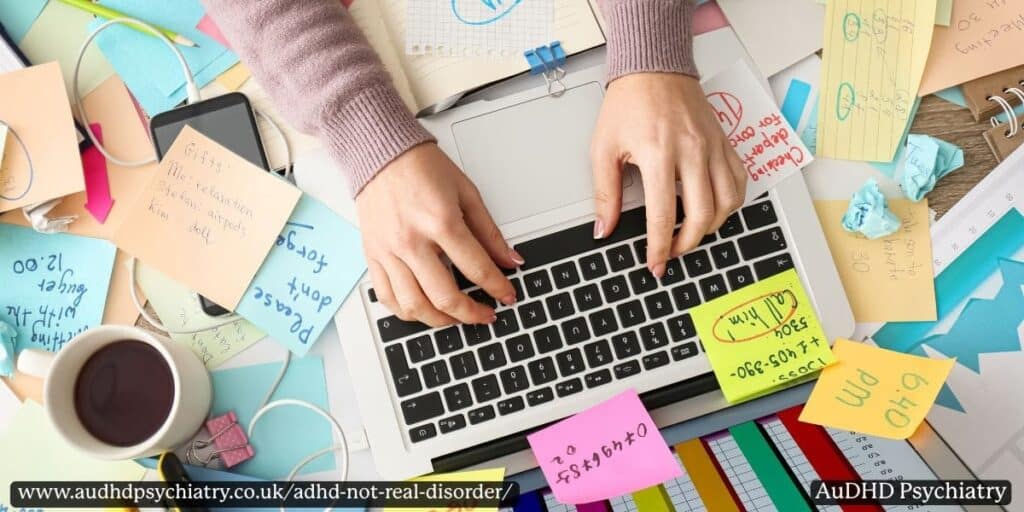
Executive Function
One of the main features of ADHD is difficulty with executive function, which pertains to the brain’s ability to plan, organise, and manage complex tasks. People with ADHD may struggle with working memory, time management, prioritisation, and inhibitory control. These challenges often affect daily life, from academic performance in school‑aged children to work responsibilities in adults.
Neuroscientific research, including studies led by experts such as Thomas E. Brown, has shown measurable executive function deficits in individuals with ADHD compared to the general population. These deficits are not a matter of “trying harder” but reflect neurological differences in brain development and information processing.
ADHD: Neurological and Biological Evidence
Brain imaging research has consistently demonstrated variations in how the brain is structured and operates in individuals with ADHD. Magnetic resonance imaging (MRI) research has identified differences in the size and activity of brain areas linked to attention, self-control, and working memory, especially in the prefrontal cortex, basal ganglia, and cerebellum.
Functional MRI (fMRI) has shown that these areas may activate differently during tasks requiring sustained attention or inhibitory control. This is not evidence of brain damage, but rather of neurodevelopmental variation.
Neuropsychological testing further supports these findings, identifying consistent patterns of difficulty in attention regulation, cognitive control, and processing speed. This objective evidence directly challenges the claim that ADHD is “not real” and reinforces the understanding of ADHD as a legitimate medical disorder requiring accurate diagnosis and effective treatment.
Does Everyone Really Have Symptoms of ADHD?
Typical Traits vs. Clinical ADHD
It is true that many people occasionally display behaviours that resemble symptoms of ADHD such as daydreaming in a meeting, forgetting appointments, or feeling restless after sitting for long periods. However, in attention deficit hyperactivity disorder, these traits are more than occasional lapses. A valid ADHD diagnosis requires a structured evaluation conducted by a qualified mental health professional, such as a psychiatrist, clinical psychologist, or specialist ADHD nurse. They occur with a severity, frequency, and consistency that disrupts daily life and overall functioning.
For example, someone without ADHD might have a hard time concentrating during a particularly dull task, while a person with ADHD may experience a persistent lack of focus across multiple settings, even when the activity is important or engaging. This level of impairment is a core part of the diagnostic criteria in the DSM‑5 and the ICD‑11.
Why Impact Matters
The difference between occasional distraction and ADHD lies in how symptoms affect education, work, relationships, and personal wellbeing. Clinical ADHD often leads to significant challenges with academic performance, sustained employment, social skills, and emotional regulation. Without treatment, it may raise the likelihood of additional mental health challenges, including mood disorders, substance misuse, or anxiety.
When Can a Clinician Appropriately Diagnose ADHD?
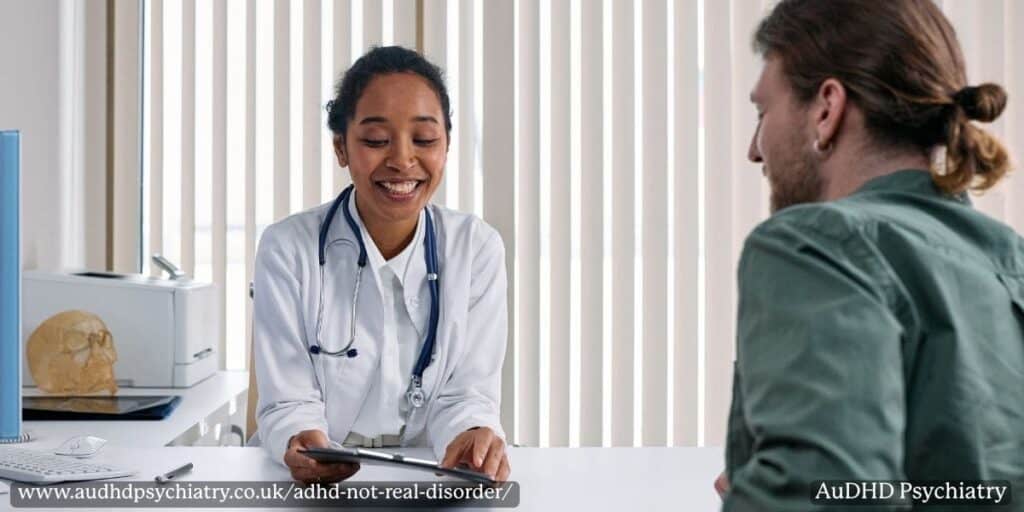
The Standard Diagnostic Process
A reliable ADHD diagnosis requires a structured evaluation conducted by an experienced, qualified mental health professional, such as a psychiatrist, clinical psychologist, or a nurse specialising in ADHD. This process examines the presence of inattentive symptoms, hyperactive‑impulsive symptoms, or both, using established diagnostic criteria. Symptoms must have been present for at least six months, started during early development (usually before age 12), and caused significant impairment in more than one area of daily life.
If you are considering a professional evaluation, our adult ADHD assessment service provides a comprehensive and structured approach to ensure an accurate diagnosis and clear treatment plan.
Why Clinical Evaluation Is Essential
Self‑diagnosis, often based on social media content or informal “ADHD checklists,” risks overlooking other mental health conditions or medical disorders that can produce similar symptoms. Conditions such as sleep problems, bipolar disorder, learning disabilities, and oppositional defiant disorder can mimic ADHD‑like behaviours. Without a comprehensive medical evaluation, there is a higher chance of misdiagnosis and inappropriate treatment. Self-diagnosis risks overlooking other conditions. A professional evaluation, or an online adult autism assessment where appropriate, ensures a full picture of your mental health. For more tailored support, neurodivergent assessments for individuals can provide a clearer understanding of your specific condition and needs.
Tools and Assessments Used
Clinicians rely on evidence‑based assessment tools to ensure accuracy. Commonly used instruments include:
- DIVA‑5 (Diagnostic Interview for ADHD in Adults) for structured symptom evaluation.
- Conners’ Rating Scales, which collect input from the patient, family members, and in some cases, school staff.
- Adult ADHD Self‑Report Scale (ASRS), which screens for symptoms consistent with ADHD.
These tools are paired with a detailed medical history, information about family members with ADHD or related disorders, and, where available, records from school‑aged years such as report cards or teacher comments. This combination of data ensures that the diagnosis of ADHD is based on clear scientific evidence and not just subjective impressions.
When Is a Behaviour Considered a Symptom of ADHD?
A behaviour can only be considered a symptom of ADHD when it occurs consistently across different settings and over an extended period. This means it cannot be limited to one environment, such as home or work, and must have been present for at least six months according to the diagnostic criteria in the DSM-5 and ICD‑11.
For example, difficulty focusing during one stressful week at work would not qualify as ADHD. However, ongoing inattention and impulsive behaviour in multiple contexts, such as during meetings, at home, and in social situations, may indicate a clinical concern.
Impairment and Functional Impact
The defining feature that separates ADHD symptoms from ordinary behaviour is functional impairment. These symptoms must interfere with daily life, impacting academic performance, work responsibilities, relationships, or self‑care. Without this measurable impact, the behaviour is unlikely to meet the criteria for an ADHD diagnosis.
Avoiding Overdiagnosis
Overdiagnosis can occur when occasional difficulties are mistaken for a neurodevelopmental disorder. This is why a thorough evaluation by a mental health professional is essential. They will rule out other medical conditions, mental health disorders, or environmental stressors that could explain the behaviour, ensuring that only genuine ADHD symptoms are recorded.
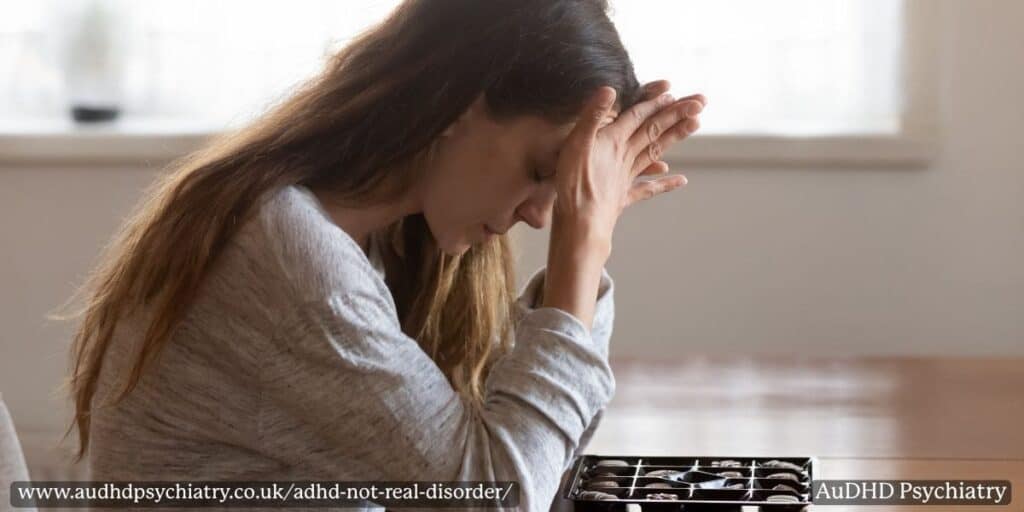
Can Other Mental Health Conditions Mimic ADHD Symptoms?
Several mental health and medical conditions can create symptoms that resemble ADHD, making careful evaluation essential. Anxiety disorders may cause difficulty concentrating due to persistent worry, while depression can lead to low motivation, forgetfulness, and slowed thinking. Sleep disorders, for example, insomnia or sleep apnoea, can produce fatigue and impaired focus that appear similar to ADHD in everyday life.
Trauma-related conditions, including post-traumatic stress disorder (PTSD), can also affect attention and impulse control, especially when the brain is in a heightened state of alert. Without a proper differential diagnosis, these overlapping signs can result in mislabeling and ineffective treatment.
This is why a thorough assessment by a qualified mental health professional is critical. By reviewing symptom history, ruling out other explanations, and using evidence-based assessment tools, clinicians can determine whether ADHD is the most accurate diagnosis or if another condition, or a combination of conditions, is the underlying cause.
Impact of ADHD When Untreated
When ADHD is left untreated, the effects can extend far beyond difficulties with focus or organisation. Over time, these challenges can disrupt education, career growth, and personal relationships. In school, untreated ADHD often leads to lower academic performance, incomplete assignments, and missed opportunities for further learning. In the workplace, ongoing inattention, missed deadlines, and difficulty managing complex tasks can limit career progression and lead to job instability.
Strain on Relationships
Relationships may also suffer. Persistent forgetfulness, impulsive behaviour, and difficulty regulating emotions can create misunderstandings with partners, family members, and friends. This can result in increased conflict, feelings of isolation, and a breakdown of trust.
Increased Risk of Co‑Occurring Conditions
The longer ADHD symptoms go unmanaged, the greater the risk of developing co‑occurring mental health conditions such as anxiety, depression, and substance use problems. These can further reduce quality of life and make daily responsibilities even harder to manage.
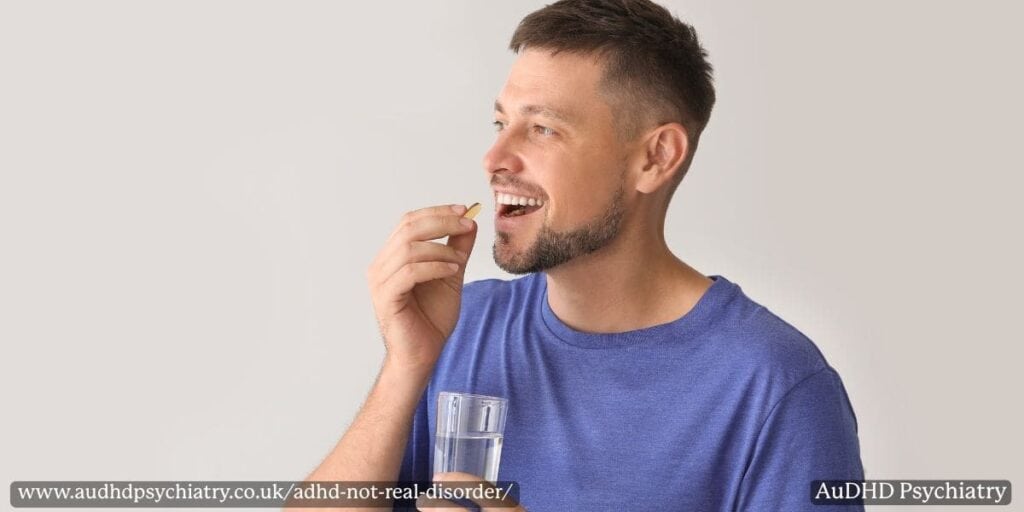
How Treatment Improves Outcomes
The good news is that effective treatment, whether through ADHD medication, behavioural therapy, lifestyle strategies, or a combination, can significantly improve outcomes. With the right support, many people experience better focus, improved emotional regulation, stronger relationships, and greater success in academic or professional settings. Early diagnosis and consistent treatment not only help manage symptoms but also protect long‑term well-being. For individuals who have already been assessed, the next step may be to start ADHD medication as part of a tailored treatment plan.
Frequently Asked Questions
Is ADHD just a way to excuse poor behaviour or lack of discipline?
No. ADHD is a medically recognised neurodevelopmental disorder with clear diagnostic criteria. It reflects differences in brain function, not a lack of willpower or moral failing.
Are ADHD symptoms just normal personality differences exaggerated?
No. While everyone can be distracted or impulsive at times, ADHD symptoms are more frequent, severe, and disruptive, significantly affecting daily functioning.
Has the definition of ADHD changed over time, and does that affect its credibility?
The definition has evolved as research improved, but this reflects scientific progress, not doubt. Updated criteria ensure more accurate diagnosis and better treatment.
Are ADHD symptoms caused by modern technology and lifestyle changes?
No. ADHD has been documented long before smartphones and social media. Technology may highlight or worsen symptoms, but it does not cause the disorder.
ADHD Not a Real Disorder: Conclusion
Decades of research and global medical consensus confirm that ADHD is a legitimate neurodevelopmental disorder, not a character flaw or a product of laziness. Brain imaging studies, genetic research, and clinical evidence consistently show measurable differences in brain function, attention regulation, and executive skills in people with ADHD.
This scientific foundation is supported by respected health authorities, including the World Health Organization, the American Psychiatric Association, and the UK’s National Health Service.
Challenging myths about ADHD is not just an academic exercise. Misinformation can delay diagnosis, prevent individuals from accessing effective ADHD treatment, and contribute to the stigma that impacts education, careers, and relationships. Dispelling these misconceptions is essential for creating understanding, improving early intervention, and ensuring people receive the right support.
If you or someone you know is struggling with symptoms such as persistent inattention, impulsivity, or difficulty with organisation, it is important to seek professional help. Take the first step today – book an ADHD assessment with AuDHD Psychiatry and get the clarity and support you deserve.
For more information about ADHD diagnosis and medical guidance, check out our previous post: How to Get Diagnosed with ADHD (Your Step-by-Step Guide).
You Might Also Like
Contact Us
We’re here to answer any questions you might have.
Get in Touch
Opening Hours
Contact Form
We’re here to help. Reach out and we’ll get back to you within 24 hours (Monday – Friday).

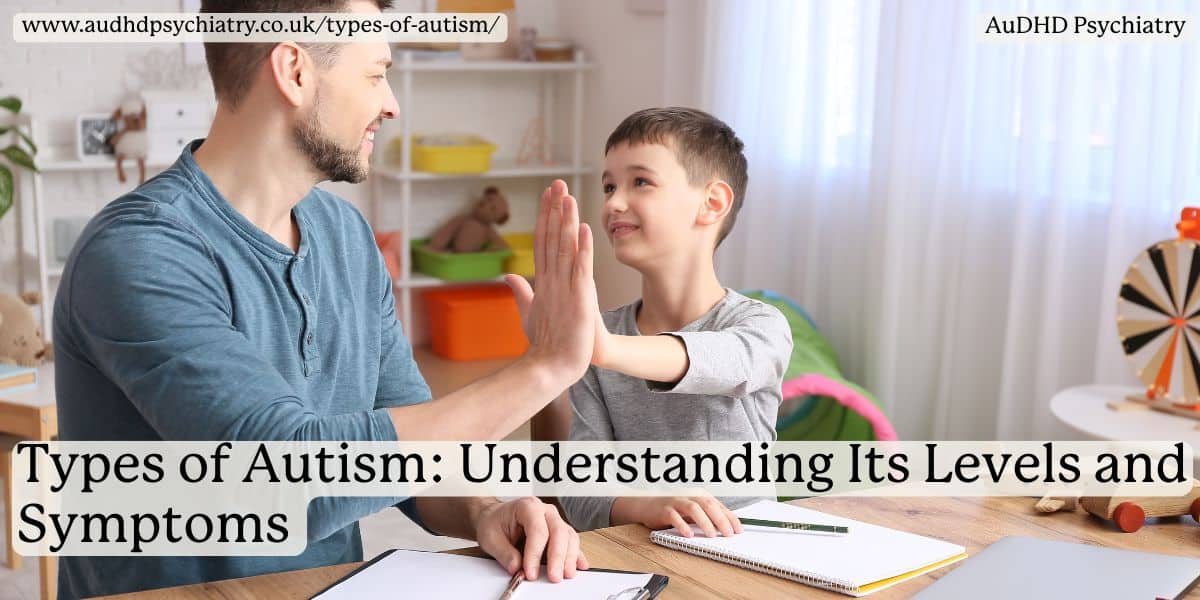
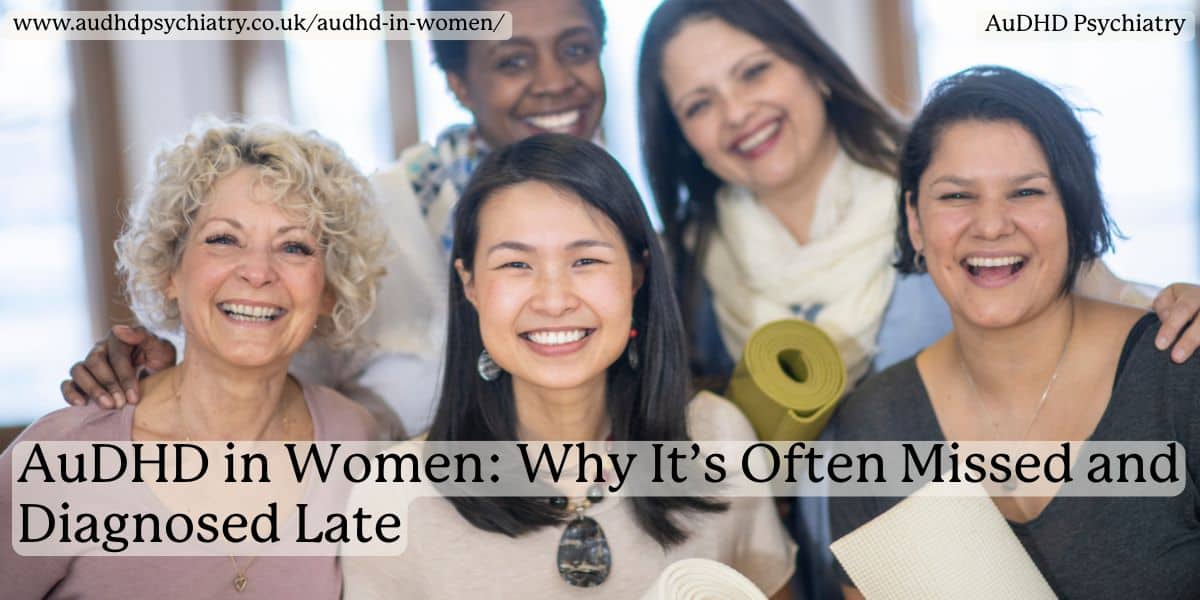
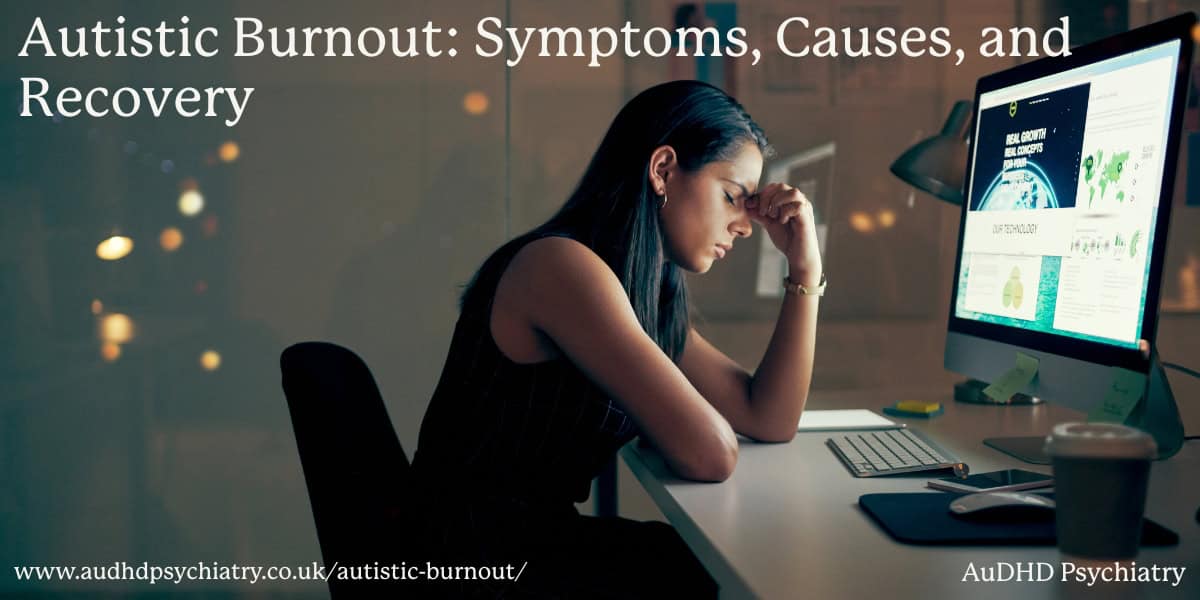
Leave a Reply